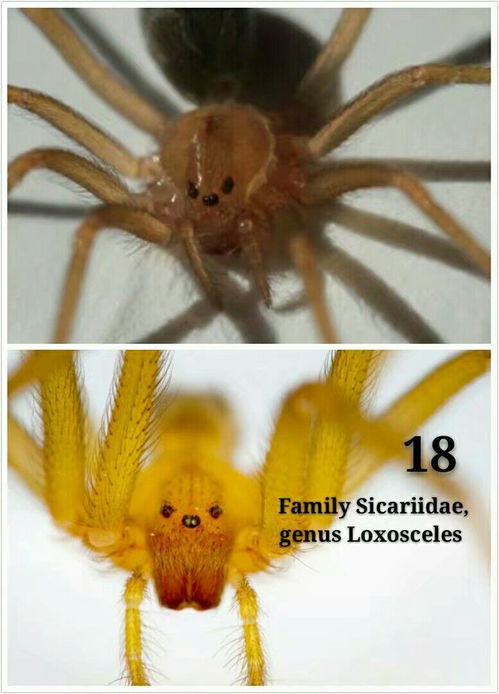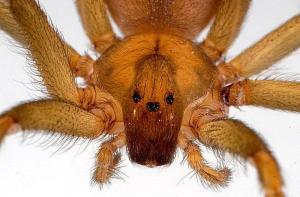
Brown Recluse Bite Pictures: Stages of a Potentially Lethal Encounter
Have you ever wondered what a brown recluse spider bite looks like and how it progresses over time? The brown recluse, also known as the fiddleback spider, is a venomous arachnid native to the southeastern United States. While not as common as other spider species, its bite can lead to serious health issues. In this article, we will delve into the various stages of a brown recluse bite, accompanied by pictures to help you identify the symptoms and understand the potential dangers.
Identifying the Spider

Before we dive into the bite stages, it’s essential to recognize the brown recluse spider. These spiders are typically brown with a dark violin-shaped marking on their back, which is where they get their name. They are about the size of a quarter and can be found in dark, undisturbed areas such as basements, crawl spaces, and garages.

The Immediate Bite

When a brown recluse bites, it usually occurs accidentally. The bite is often painless at first, making it difficult to detect. However, the venom contains potent enzymes that can cause tissue damage and other complications.

The First 24 Hours

Within the first 24 hours after a bite, the area around the bite may become red, swollen, and painful. Some individuals may experience a mild fever or chills. It’s important to monitor the bite site closely during this time.

Days 2-4: The Lesion Develops
During the second to fourth day after the bite, the lesion may begin to change. It may become necrotic, meaning the tissue around the bite site starts to die. This can lead to a crater-like wound with a silver border.

Days 5-14: Healing and Potential Complications
By the fifth to fourteenth day, the wound may start to heal. However, complications can arise during this stage. Some individuals may experience severe pain, fever, and difficulty healing. In rare cases, the infection can spread to other parts of the body, leading to more severe health issues.

Table: Brown Recluse Bite Stages and Symptoms
| Stage | Timeframe | Symptoms |
|---|---|---|
| Immediate Bite | Immediate | Painless, no visible symptoms |
| First 24 Hours | 24 Hours | Redness, swelling, mild pain, fever, chills |
| Days 2-4 | 2-4 Days | Necrotic lesion, silver border, mild pain |
| Days 5-14 | 5-14 Days | Severe pain, fever, difficulty healing, potential infection spread |
Preventing and Treating Brown Recluse Bites
Preventing a brown recluse bite is the best way to avoid complications. Keep your living space clean and free of clutter, especially in areas where spiders may hide. If you suspect a brown recluse bite, seek medical attention immediately



